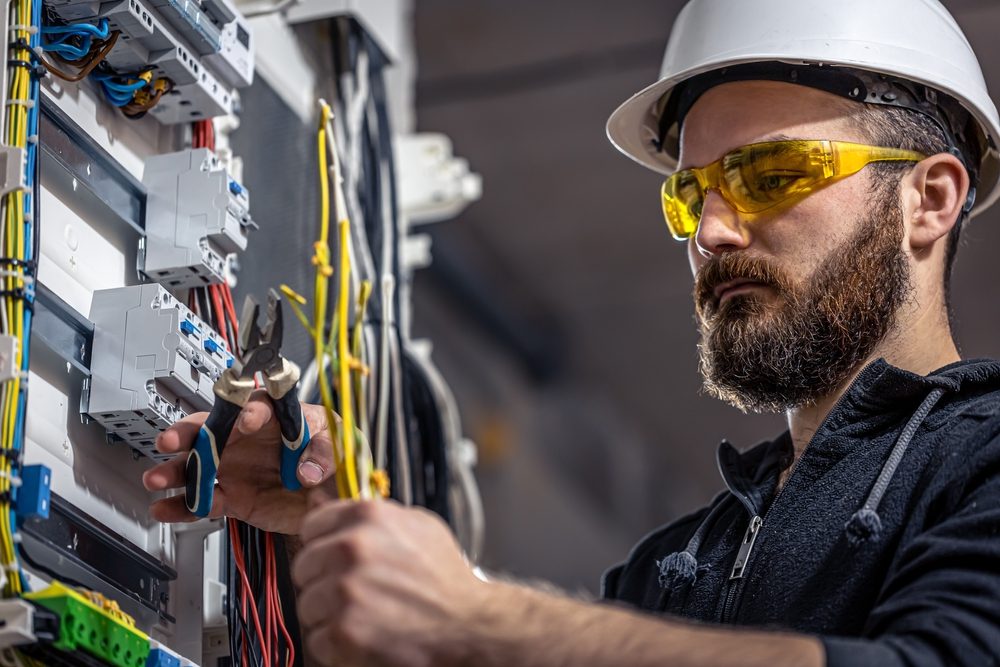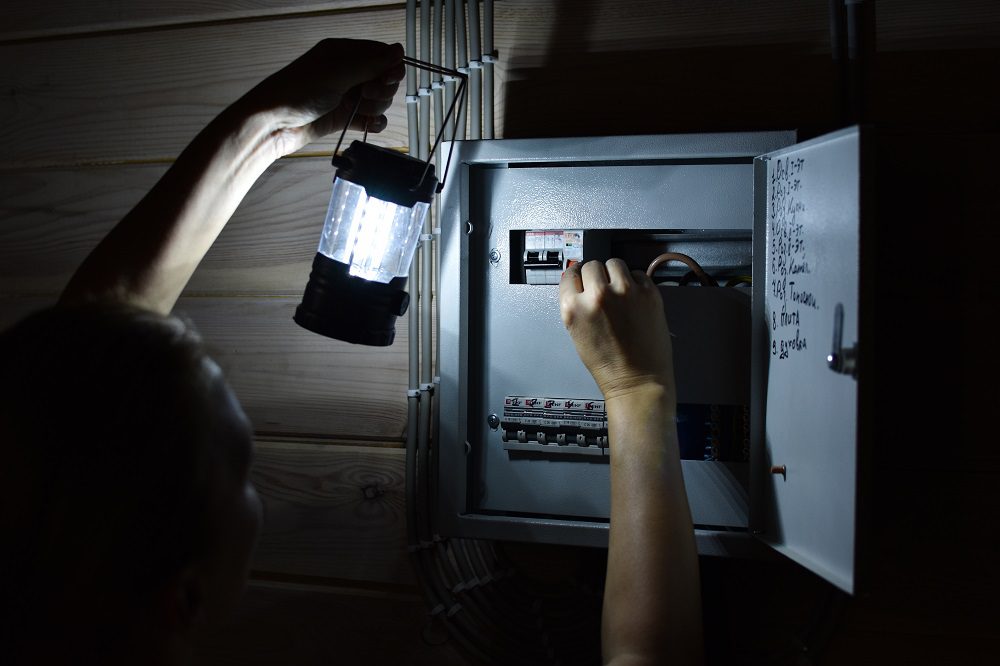
How DIY Wiring Mistakes Create Hidden Risks in Charlotte Homes
Homeowners in Charlotte take pride in projects they can handle. Painting a room or swapping a faucet is one thing. Electrical work is a different category. Small wiring mistakes can sit inside walls for years and set up the conditions for shock, damaged electronics, or a house fire. Ewing Electric Co. sees the results across neighborhoods from Dilworth and Plaza Midwood to Ballantyne and University City. This article explains the risks, the real signs of trouble, and how to approach safe, code-compliant fixes without guessing.
Why small wiring errors become big problems
Electricity punishes poor connections. A loose splice or an undersized wire heats up under load. Heat weakens insulation, which increases resistance and creates more heat. That loop continues until a breaker trips or the insulation fails. The home might smell like hot plastic for a few minutes during a cooking rush, then seem fine. The risk remains hidden until the next heavy load.
Charlotte’s housing stock adds wrinkles. Many homes built before the 1990s have mixed wiring types, aluminum branch circuits from the 1960s–1970s, or additions wired in stages. Newer builds often include high-load kitchens, EV chargers, and home offices. DIY shortcuts that worked 30 years ago do not support today’s loads.
Common DIY mistakes seen in Charlotte homes
Backstabbed receptacles cause intermittent outages. Builders once used backstab holes on receptacles to save time. Over years of thermal cycling, those spring connections loosen. Homeowners who daisy-chain more outlets during a remodel can push those weak points to failure under space heaters or air fryers.
Mixed wire gauges overload circuits. It is common to find 14 AWG tied into a 20-amp kitchen circuit. The breaker protects the circuit at 20 amps, but the 14-gauge segment is only rated for 15 amps. That section overheats first.
Wrong breaker types on AFCI/GFCI circuits create nuisance trips and unsafe resets. Swapping a tripping AFCI breaker with a standard breaker stops the nuisance, but it also removes arc-fault protection required by code in many rooms. This is frequent in bedrooms and living rooms throughout South End and Steele Creek.
Neutral and ground tied together in subpanels. Homes with detached garages or backyard offices sometimes have the neutral and ground bonded in the subpanel. Bonding belongs only at the main service. This error can send return current onto grounding paths, which becomes a shock hazard.
Hidden junctions without boxes. Splices buried behind drywall or inside cabinets without accessible junction boxes make troubleshooting slow and dangerous. If a splice fails, the heat has nowhere to dissipate safely.

How these issues show up day to day
The signs are ordinary: flickering lights when the fridge cycles, warm dimmer switches, a faint buzzing at an outlet, or a breaker that trips when the microwave and toaster run together. A porch receptacle that works in dry weather but trips after rain points to a GFCI issue or a wet box. A minor tingle from a metal appliance case can indicate a missing equipment ground or a bootleg ground at the receptacle.
An electrician hears these clues and maps them to likely faults. For example, flicker on one half of a room often traces to a backstabbed connection at the first receptacle in the chain. A warm switch feeding a group of can lights may point to an overloaded dimmer not rated for LED drivers. These are the patterns that a trained electrical wireman recognizes in minutes.
Code and safety basics for Charlotte homeowners
Charlotte follows the North Carolina Electrical Code, based on the NEC, with local amendments. Kitchens need two or more 20-amp small appliance circuits, GFCI protection, and arc-fault protection in many cases. Laundry areas require a dedicated 20-amp circuit. Bathrooms need a dedicated 20-amp circuit with GFCI. Bedrooms and living areas require AFCI protection. Outdoor and garage outlets need GFCI. Aluminum branch circuits require approved connectors and antioxidant compound when spliced or terminated. Bedrooms with older aluminum wiring demand regular inspection and listed repair methods.

Permits matter for safety and insurance. If a fire investigation finds unpermitted wiring, insurers may question coverage. Ewing Electric Co. handles permits, inspections, and coordination with Charlotte-Mecklenburg inspectors so work passes the first time.
What rewiring actually means in Charlotte
Rewiring Charlotte NC can range from targeted circuit replacements to a full home rewire. A partial rewire might replace knob-and-tube runs feeding upstairs bedrooms, add AFCI/GFCI protection, and correct open grounds. A full rewire replaces all branch circuits, updates the service panel, adds grounded receptacles throughout, and brings the home to current code.
Electrical wiring Charlotte NC cost depends on house size, access, and finishes. Based on recent projects:
- Two-bedroom bungalow with good crawl and attic access: $10,000–$18,000 for a full rewire with panel.
- Three- to four-bedroom home, mixed access and plaster: $18,000–$35,000.
- Targeted rewiring of a kitchen, laundry, and bath with panel upgrades: $6,000–$14,000.
Costs vary with patching, permits, and AFCI/GFCI device choices. Ewing Electric Co. offers transparent line-item proposals so homeowners see the scope and options.
When repair beats replacement
Full rewiring is not always the right move. If testing shows solid copper branch circuits with intact insulation and proper grounding, focused fixes may solve the problem. An electrical wiring repair service can replace failing receptacles, correct mislabeled breakers, move overloaded circuits, and install whole-home surge protection. For aluminum branch circuits, listed COPALUM or AlumiConn methods can stabilize connections without replacing every run, which protects budget and reduces disruption.

The right way to troubleshoot without tearing up walls
A professional starts with load and continuity tests, thermal imaging at panels and devices, and voltage drop under known loads. They verify grounding and bonding, check neutral integrity, and identify multi-wire branch circuits that need handle-tied breakers. This approach locates the first device in a failing chain, which allows a surgical repair.
Homeowners often try to replace a tripping breaker first. If a new breaker still trips, the fault is in the circuit. Replacing devices blind wastes time and increases risk. Accurate testing saves money and keeps drywall patching to a minimum.
Safety upgrades that make the biggest difference
Arc-fault and ground-fault protection reduces the chance of fire and shock from common errors. Combination AFCI breakers protect entire circuits from series and parallel arcing. Dual-function breakers provide both AFCI and GFCI in one device for laundry areas, finished basements, and kitchens. Tamper-resistant receptacles improve child safety. Whole-home surge protection at the panel protects HVAC, appliances, and electronics from storms and utility events common in summer.
What to expect from Ewing Electric Co.
Ewing Electric Co. provides electrical wiring services across Charlotte, including SouthPark, NoDa, Matthews, Huntersville, and Mint Hill. The team shows up with stocked vans, test gear, and covers to protect floors. Most diagnostic visits last 60–90 minutes. Minor repairs, like replacing a failed GFCI or correcting a backstabbed chain, can be finished on the first visit. Larger projects, such as rewiring a kitchen or adding dedicated EV and microwave circuits, are scheduled after a written proposal.
The company is transparent about electrical wiring Charlotte NC cost. Each estimate includes material choices, permit fees, device counts, and optional upgrades. Homeowners can see the price difference between GFCI receptacles at points of use and GFCI/AFCI protection at the breaker, along with the pros and cons of each.
A quick homeowner checklist before calling
- Note which devices fail and what was running at the time. List appliances, space heaters, vacuums, and chargers.
- Test the GFCI and AFCI buttons on devices and breakers. Record which units trip and reset.
- Feel for warmth on switches and receptacles after normal use. Warm means a load issue or poor connection.
- Photograph the panel with labels. Clear images help an electrician plan.
- Avoid using affected circuits until a pro inspects them.
Why “electrical wiring near me” should lead to a licensed pro
Searches like electrical wiring near me often pull up handymen alongside licensed contractors. For troubleshooting, rewiring Charlotte NC, and residential electrical wiring Charlotte NC, a licensed electrical wireman brings code knowledge, testing tools, and liability coverage. That combination protects the family, the house, and the budget. It also supports resale value, since buyers and inspectors in Charlotte ask for permits and proof of licensed work.
Real examples from local jobs
A 1972 ranch in Madison Park had intermittent flicker in the living room. Thermal imaging found a hot neutral at the first receptacle after the panel due to a backstabbed connection. Moving the conductors to the side screws and pigtailing the neutrals stabilized the circuit. Total repair rewiring Charlotte NC time was under two hours, and the cost was a small fraction of a rewire.
A kitchen remodel in Ballantyne added a second oven without a dedicated circuit. The homeowner tied it into a small appliance circuit that already served the island. Breakers tripped every holiday. Ewing Electric Co. ran a new 240-volt circuit, upgraded the panel space with a tandem layout approved for the model, and balanced loads across phases. The kitchen now runs multiple appliances without nuisance trips.
An older home in Plaza Midwood showed warm outlets behind a media console. Testing revealed a bootleg ground where the neutral was tied to the ground screw at the receptacle. Replacing the run with grounded cable and installing AFCI protection removed the shock hazard and brought the room to code.
Ready for safe, code-compliant wiring
If a breaker trips often, if lights flicker, or if a switch plate feels warm, the home is sending a clear signal. Ewing Electric Co. offers prompt electrical wiring repair service, full-scope electrical wiring services, and honest advice about when to repair and when to rewire. For fast scheduling in Charlotte and nearby areas, call or request a visit online. The team will assess the issue, provide a clear plan, and complete work that keeps the home safe and compliant.
Ewing Electric Co provides dependable residential and commercial electrical services in Charlotte, NC. Family-owned for over 35 years, we handle electrical panel upgrades, EV charger installation, generator installation, whole-home rewiring, and 24/7 emergency repairs. Our licensed electricians deliver code-compliant, energy-efficient solutions with honest pricing and careful workmanship. From quick home fixes to full commercial installations, we’re known for reliable service done right the first time. Proudly serving Charlotte, Matthews, Mint Hill, and nearby communities. Ewing Electric Co
7316 Wallace Rd STE D Phone: (704) 804-3320 Website:
https://ewingelectricco.com/ |
Electric Company in Charlotte
Social:
Facebook |
Instagram |
Twitter |
LinkedIn |
Yelp |
Angi |
BBB
Map: View on Google Maps
Charlotte,
NC
28212,
USA